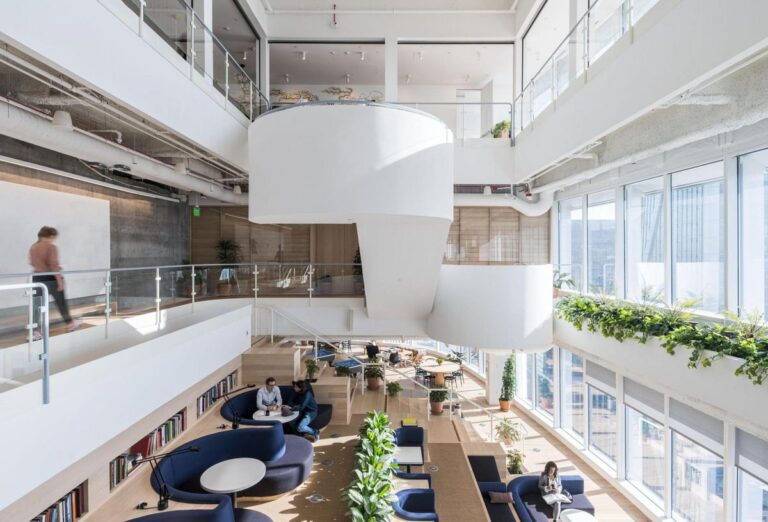The Rise of Flexible Workspaces in Today’s Business Environment
As traditional office spaces grapple with high vacancy rates and stagnant demand, the flexible workspace sector is experiencing significant growth. With shifting demands from modern businesses, the appeal of flexible office environments, such as those offered by WeWork, is becoming increasingly evident.
Flexible Workspaces: A Growing Preference
A recent survey conducted by WeWork indicated that approximately 60% of companies looking to expand will prefer flexible workspaces over conventional offices in the coming years. Furthermore, nearly 90% of these companies recognize that office environments are crucial for enhancing profitability and fostering a positive workplace culture.
Understanding the Shift in Corporate Needs
Luke Robinson, WeWork’s regional president for North America, noted that current corporate trends are driving the demand for flexible and cost-effective real estate solutions that accommodate various needs. He stated, “There’s a lot of unpredictability in today’s workplace, which increases the need for flexibility.” This shift indicates that large enterprises, once hesitant to explore flexible options, are now utilizing them more frequently.
Similarly, Luke Armstrong, WeWork’s regional president for the UK, Ireland, EMEA, and Asia-Pacific, emphasized the challenges of forecasting workforce presence in hybrid settings. “Committing entirely to a traditional lease portfolio no longer makes business sense,” he remarked, reflecting a broader recognition of the changing landscape in office requirements.
WeWork’s Approach to Flexible Solutions
In response to the evolving demands, WeWork has intensified its outreach to enterprise clients seeking tailored real estate solutions. This includes offering move-in ready office spaces globally, thus simplifying real estate transactions.
“Our intention is to deliver simplicity out of complexity,” explained Armstrong. WeWork’s flexible offerings include large office spaces and entire floors that can be modified to meet specific client needs, allowing organizations to concentrate on their core business operations.
Dedicated Support for Enterprise Clients
One of WeWork’s distinguishing features is its dedicated enterprise account management team. This team serves as a single point of contact for clients, streamlining communication and facilitating the management of spaces across multiple locations. Robinson noted, “This creates an unmatched level of convenience in real estate transactions.”
Expanding Presence Across Locations
WeWork is committed to enhancing its offerings to ensure that premium, well-located flexible workspaces are available worldwide. With over 600 locations and recent partnerships—like the collaboration with Vast Coworking Group, which opened over 75 new locations in suburban areas—WeWork continues to cater to the diverse needs of today’s companies.
The Future of Workspaces
As businesses resume in-office work, the demand for high-quality, strategically located workspaces is on the rise. “We’re seeing a clear demand for exceptional experiences in the buildings we provide,” Armstrong affirmed. With over 15 million visitors recorded at WeWork locations last year—a 12% increase from the previous year—the company aims to maintain its leadership position in the flexible workspace market.
Conclusion
In conclusion, the increasing preference for flexible workspaces embodies a fundamental shift in how modern businesses approach their real estate strategies. As WeWork continues to adapt and expand, it remains poised to meet the growing demands of organizations navigating this new landscape.
This article was produced in collaboration between Studio B and WeWork. Bisnow’s editorial team was not involved in the production of this content. For more insights, contact Studio B at [email protected].
